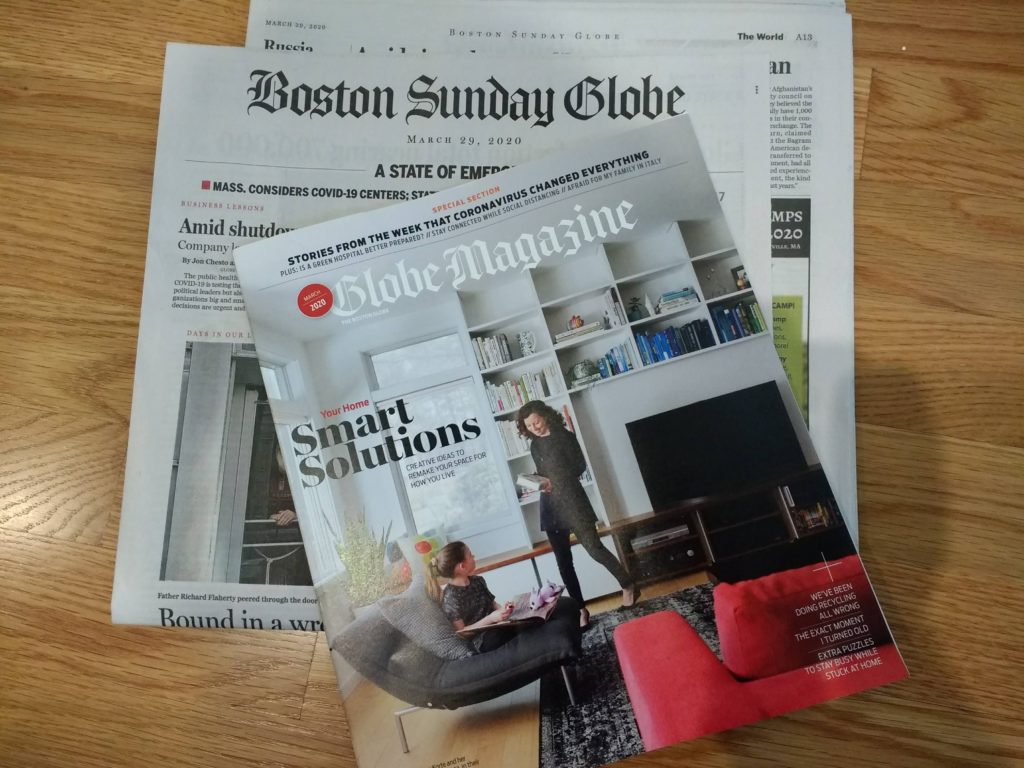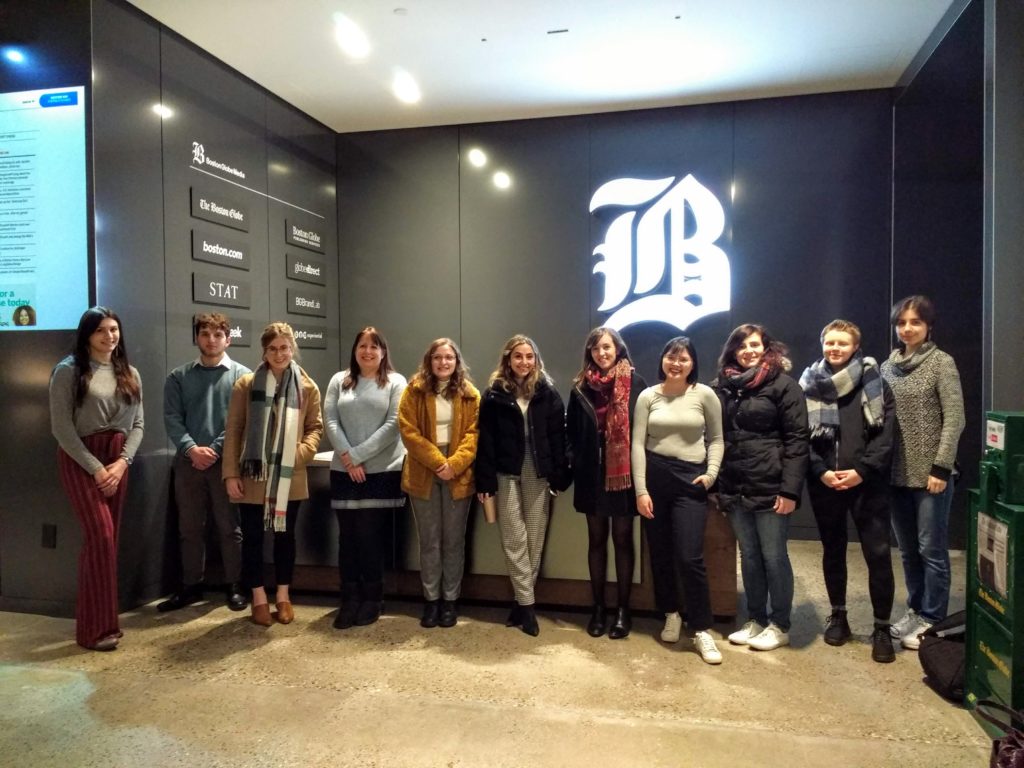Emersonians Seize Moment, Report on Impacts of COVID-19 for Globe Magazine

Amid the madness of their last week on campus, a group of Emerson students quickly pounced on the opportunity to write about the impact of the novel coronavirus for The Boston Globe Magazine.
This the fourth year that Assistant Professor Susanne Althoff’s is teaching Writing for The Boston Globe Magazine class. Usually the students visit the newsroom several times during the semester, meet and interact with staffers, and pitch ideas to the editor-in-chief. But this year’s class became very different once the COVID-19 public health emergency struck.
As the class met on the evening of Tuesday, March 10, they learned two things at once: The magazine wanted articles and Emerson classes were going remote. Althoff said seven students had their pitches greenlit on March 14. They had fewer than four days to do the reporting and writing, while some packed up their possessions, ended jobs, and prepared to transition to our present circumstances.
Monica Petrucci ’20 seized the opportunity to write about her family living abroad in Italy, one of the major hotbeds of the COVID-19 pandemic. Petrucci connected with her family on WhatsApp to learn how her grandfather, aunts, uncles, and cousins, were doing during this unprecedented upheaval.
Petrucci wrote from her heart about her sister’s impending wedding in Italy this summer, the Italian tourism industry, and more:
At first, their responses only worsened my concern. One cousin, a bartender who hasn’t worked for weeks, was quarantined alone and worrying about the long-term economic effects that will linger once the virus calms down. “Without tourism, Italy will die,” he says. An aunt says they only leave their homes once a week to go to the grocery store, and they must go alone, wearing masks and gloves and staying one meter away from employees and other customers. Police are constantly on the streets asking people why they’re out of their houses, prepared to fine anyone without a legitimate excuse.
“Writing such a personal piece was tough at first; I’m not used to writing journalistic pieces that are so focused on my own feelings,” said Petrucci. “But then I started speaking to my family overseas, and once they provided such profound and lighthearted takes on the topic, it became a lot easier to share their story that I felt a lot of locals needed to hear during such a trying time.”
Her octogenarian grandfather remained upbeat, swearing he’d “eat the virus,” while her uncle remarked, “The wine is finishing, there’s too many of us in the house!”

Melissa Sances, MFA ’22, spoke to 12 small business owners about how their companies have been impacted. Sances called more than 40 businesses, many of whom didn’t want to talk, which she understood during such a devastating time.
“Why would anyone want to share during a time like this? But people’s personalities, their humanness, always comes out if you let it. I think as reporters it is our job to shape a story, and also give it room to capture the human experience as it’s unfolding,” said Sances.
Althoff worked at the Globe for 12 years, the last six as editor-in-chief of the Globe Magazine, before joining Emerson in 2015. She came away very impressed with the seven students who had their work appear in the 20-page package while dealing with stress of unparalleled circumstances.
“They interviewed a range of Boston-area people — from small business owners to a bride-to-be, priest, and homeless shelter leader — and in some cases wrote about their own situation,” said Althoff. “They learned what it means to be a writer who has to react quickly and with sensitivity and grace, and help the public understand the situation we’re all facing.”
The students’ effort was certainly not lost on the magazine’s current editor-in-chief, Francis Storrs, who sent a very complimentary email to them after the issue came out.
“Your reporting was top-notch; your writing vivid and powerful. These stories will inform and delight and move people–they are work that matters–and we quite literally could not have done it without you,” wrote Storrs.
In total, nine articles were written by Emerson students, with one appearing in the March 21 edition and the others in the March 29 edition.
The articles are also available online:
At risk populations: ‘What helps is feeling like you’re not going it alone’ by Monica Petrucci and Molly Grab.
12 small business owners on how coronavirus has affected them by Melissa Karen Sances
These children’s book authors are reading their stories online by Melissa Karen Sances
I don’t know if I can get married there now by Lily Hartman
I used to wait tables by Melissa Rosales (scroll to second article)
How religious leaders are keeping faith during coronavirus, even from a social distance by Monica Petrucci (first article)
6 voices from college: Alone in a dorm, what a coronavirus diagnosis feels like, and more by Melissa Rosales, Carly Thompson, Jakob Menendez (final three articles)
Categories